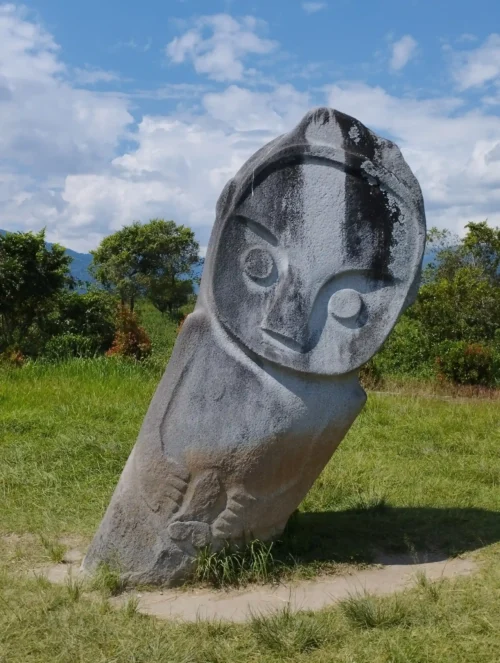Your Ultimate Guide to Exploring the Hidden Gems of Indonesia
Sulawesi, an island in central Indonesia, is one of the country’s best-kept secrets. Its dramatic landscapes, diverse cultures, and rich wildlife make it a dream destination for adventurous travelers. Whether you’re an eco-tourist, a cultural explorer, or a diving enthusiast, Sulawesi offers something for everyone. This travel guide will help you navigate the island’s must-see spots, practical tips, and how to make the most of your time in Sulawesi.
Why Visit Sulawesi?
Sulawesi, once known as Celebes, is an island that boasts an incredible variety of landscapes, from the towering mountains and lush jungles to pristine beaches and coral reefs. Unlike other well-trodden destinations in Indonesia, Sulawesi remains relatively untouched by mass tourism. Its unique biodiversity, rich culture, and welcoming locals make it an ideal place for travelers seeking an authentic, off-the-beaten-path experience. With fewer crowds and hidden gems waiting to be discovered, Sulawesi is the perfect destination for eco-tourism and adventure travel.
Getting to Sulawesi
The best way to reach Sulawesi is by flying into one of its major cities. Palu Airport, located in the capital of Central Sulawesi, is one of the most accessible points for travelers heading to the region. With direct flights from major Indonesian cities like Jakarta, Surabaya and Denpasar, it’s a convenient entry point for visitors traveling to the island. Palu Airport is just a short distance from Six Degrees Off Grid, making it an excellent gateway for those staying at our eco-lodge.
For those traveling by sea, Donggala Port offers ferry connections from various parts of Sulawesi and other nearby islands. The port is just a short drive from Six Degrees Off Grid, providing easy access to Borneo, South Sulawesi and beyond.
Best Time to Visit Sulawesi
Sulawesi enjoys a tropical climate, with a wet and dry season. The dry season, which runs from May to September, is the best time to visit for outdoor activities such as hiking, diving, and exploring cultural sites. The wet season, from October to April, sees more rainfall, but this can also be a good time to experience the island’s lush beauty and fewer crowds. It’s important to plan your trip based on the activities you want to experience and the regions you plan to explore.
Top Destinations in Sulawesi
Makassar & South Sulawesi
Makassar, the bustling capital of South Sulawesi, is known for its rich history and vibrant atmosphere. Highlights include Fort Rotterdam, the Tallo River, and the lively Losari Beach. It’s also the gateway to explore the surrounding regions, including the famous Tana Toraja.
Tana Toraja: A Land of Culture and Tradition
Tana Toraja, located in South Sulawesi, is a cultural treasure trove. This region is famous for its elaborate funerary rites, stunning mountain landscapes, and traditional villages. The Toraja people’s intricate wooden houses and their unique burial practices, including burial sites in caves and giant stone graves, offer an unforgettable cultural experience.
Bunaken & North Sulawesi: Diving Paradise
For diving enthusiasts, Bunaken National Park in North Sulawesi is a must-visit destination. Known for its crystal-clear waters and diverse marine life, Bunaken is one of the world’s top dive spots. It’s home to an incredible array of fish, coral, and even sea turtles.
Central Sulawesi: Nature & Wildlife
Central Sulawesi offers some of the most breathtaking natural landscapes in Indonesia. Here, you’ll find the Napu/Bada Valley, known for its mysterious megaliths, and pristine forests (the world-famous Lore Lindu National Park) that are home to unique wildlife. It’s the perfect destination for nature lovers and those looking to escape into the wilderness. Six Degrees Off Grid, located in Towale Village near Palu, provides a fantastic base for exploring this remote area.
Adventure Activities in Sulawesi
Sulawesi offers a wide variety of adventure activities for thrill-seekers. Whether you’re a diver, hiker, or cultural explorer, there’s something for everyone:
- Diving & Snorkeling: With its clear waters and incredible marine biodiversity, Sulawesi is a diver’s paradise. Popular spots include Bunaken, Wakatobi, and the Togean Islands.
- Trekking & Hiking: From the stunning peaks of Mount Rantemario to the lush jungles surrounding Bada Valley, trekking in Sulawesi is an adventure for the intrepid traveler.
- Cultural Experiences: Explore traditional Toraja villages, visit local markets, and attend unique cultural festivals to gain an insight into Sulawesi’s rich heritage.
Eco-Tourism in Sulawesi
Sulawesi is an excellent destination for eco-tourism, offering opportunities to explore unspoiled natural beauty while supporting local conservation efforts. Many eco-lodges, like Six Degrees Off Grid, are committed to sustainability, using solar energy, local materials, and practices that preserve the island’s pristine environment. Supporting these initiatives helps protect Sulawesi’s delicate ecosystems and empowers local communities.
Local Cuisine in Sulawesi
Sulawesi’s food scene is as diverse as its culture. From the spicy dishes of Makassar to the hearty soups of the highlands, there’s something to satisfy every palate. Don’t miss dishes like Coto Makassar (a rich beef soup), Tinutuan (a porridge-like dish made with vegetables and rice), and grilled fish from the island’s coastal areas. Here in Towale, Moringa (the trendy superfood) has been a part of the diet for hundreds of years.
Cultural Insights: The People of Sulawesi
Sulawesi is home to a wide array of ethnic groups, including the Bugis, Toraja, and Kaili people. Each group has its own distinct culture, language, and traditions. The Toraja people, in particular, are known for their elaborate burial rituals and impressive traditional homes. The Kaili people, who live near Six Degrees Off Grid, are known for their unique dances and hand-woven textiles.
Practical Tips for Traveling in Sulawesi
- Safety: Sulawesi is generally safe for travelers, but it’s important to exercise common sense, particularly in remote areas. Always check local travel advisories before your trip.
- Health: Make sure to consult a doctor about vaccinations before traveling to Sulawesi. Malaria is present in some areas, so take necessary precautions.
- Currency: The local currency is the Indonesian Rupiah (IDR). ATMs are available in larger cities, but it’s a good idea to carry cash when traveling to rural areas.
- Getting Around: Traveling in Sulawesi can be a bit challenging, especially in remote areas. Public transportation is available, but renting a car or using local taxis is often more convenient. Be prepared for long travel times between destinations.
Conclusion: Why Sulawesi Should Be Your Next Travel Destination
Sulawesi offers an unforgettable travel experience, with its combination of breathtaking landscapes, unique cultures, and incredible wildlife. Whether you’re diving in Bunaken, hiking through the Bada Valley, or exploring the rich traditions of the Toraja people, Sulawesi is a destination that promises adventure and discovery at every turn. For eco-conscious travelers, it’s also a place to experience sustainable tourism firsthand, with eco-lodges like Six Degrees Off Grid leading the way in responsible travel.
Start planning your Sulawesi adventure today—this hidden gem is waiting to be explored!
FAQs
Is Sulawesi safe for tourists?
Yes, Sulawesi is generally safe for tourists, though it’s important to be mindful of the remote nature of some regions.
How do I get around Sulawesi?
Traveling around Sulawesi can be done by bus, plane, or ferry. Renting a car or hiring a local driver is often the most convenient option.
What is the best time of year to visit Sulawesi?
The best time to visit is during the dry season (May to September), when the weather is ideal for outdoor activities.
What should I pack for Sulawesi?
Bring lightweight clothing, sturdy shoes for hiking, swimwear for diving or snorkeling, and a good insect repellent. Don’t forget a camera to capture the island’s beauty!
Read more: Our Insights Section



